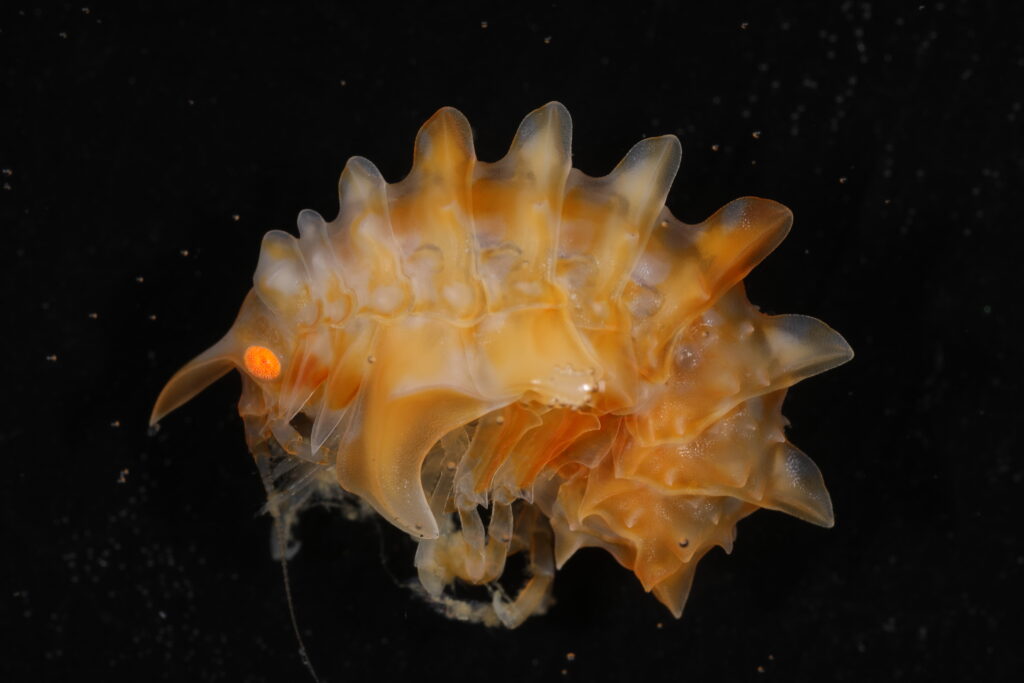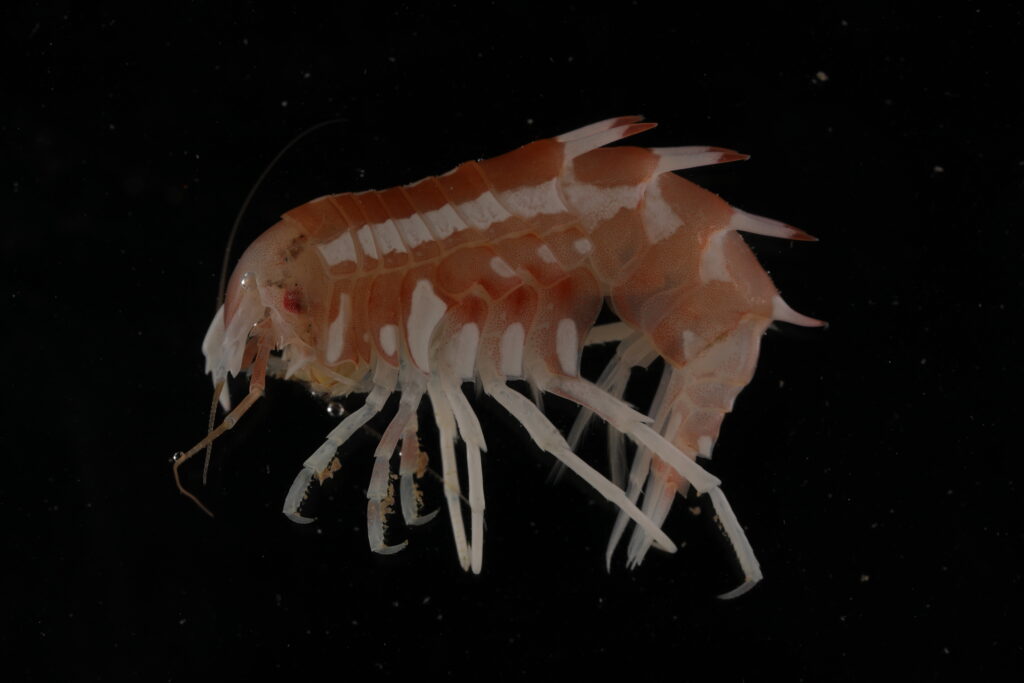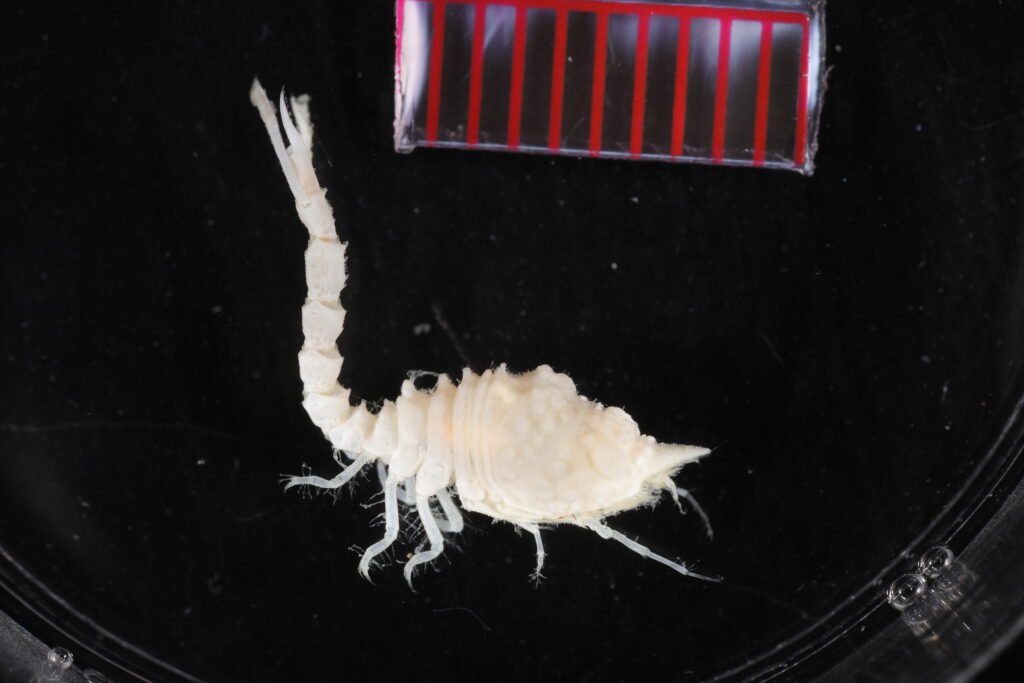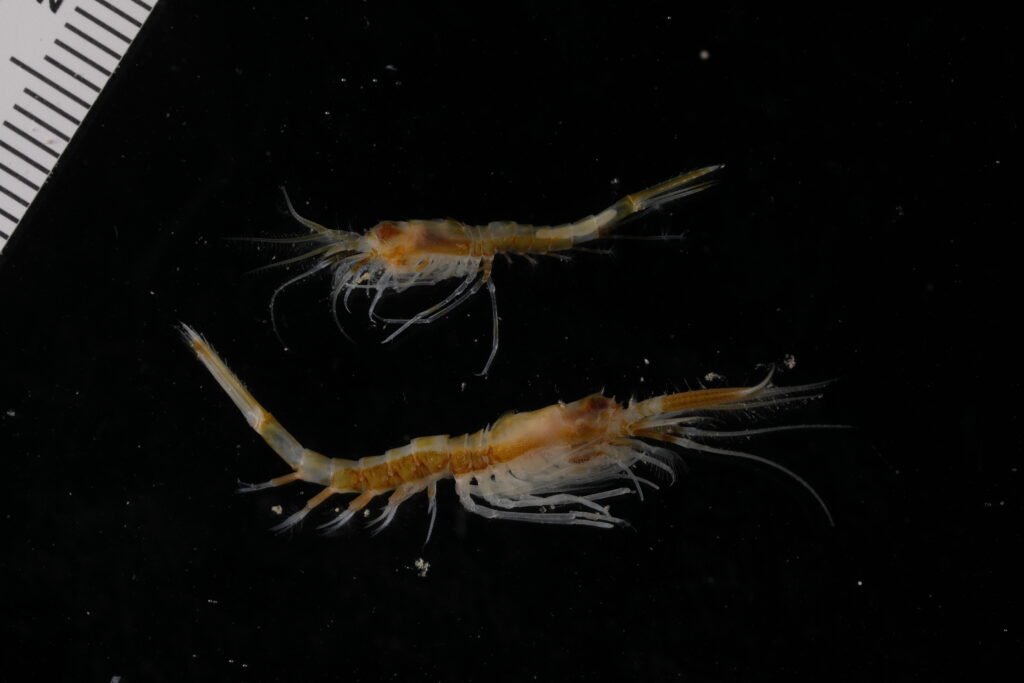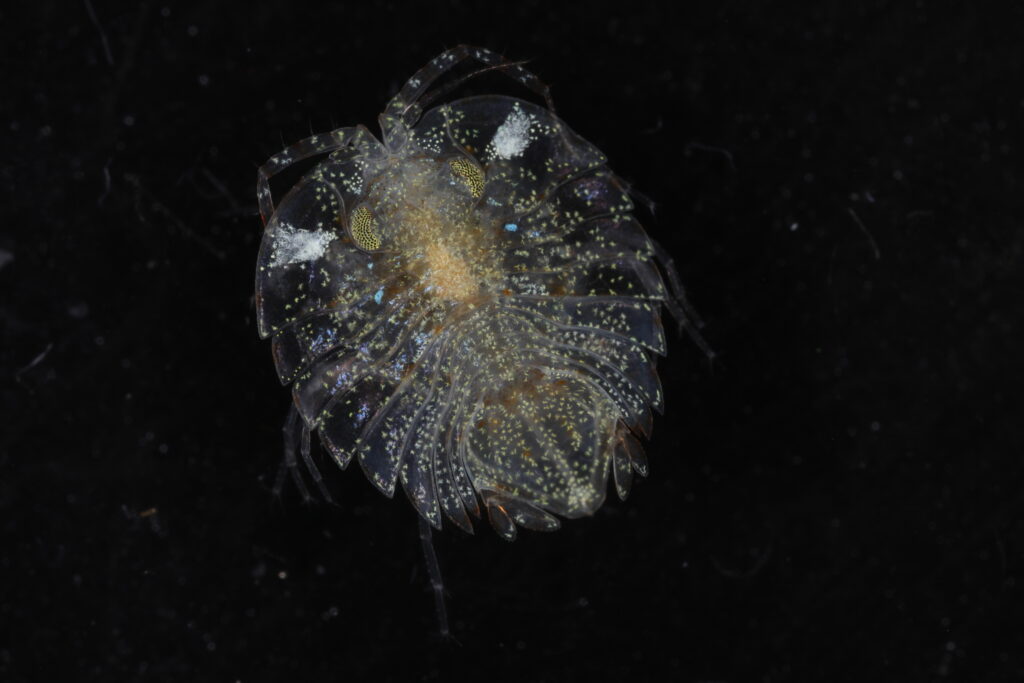Dr. Kocot’s proposal entitled “Collaborative Research: PurSUiT: A Backbone for the Peracarida” ($840,771) has been funded by the National Science Foundation’s Division of Environmental Biology and the Established Program to Stimulate Competitive Research (EPSCoR). This collaborative project with lead PI Dr. Sarah Gerken (University of Alaska, Anchorage) and PI Dr. Regina Wetzer (Natural History Museum of Los Angeles County) was funded to support research on Poorly Sampled and Unknown Taxa (PurSUiT). “The PurSUiT category is meant to encourage biodiversity discovery and description in poorly known, or dark areas, of the Tree of Life. Its incorporation as a special category within SBS reflects a continued effort to close significant gaps in biodiversity knowledge.”
This project will address the evolutionary history of Peracarida, an extremely large and diverse group of crustaceans that are found everywhere on Earth, from deserts to the deepest ocean trenches. The most familiar peracarids are the terrestrial isopods, commonly known as roly polies, that can be found under rocks in one’s back yard. However, peracarids can be found in virtually all terrestrial and aquatic habitats. In particular, the world’s oceans are teeming with these ‘bugs of the sea’ that exhibit amazing variety and dramatically different body among groups. Despite being found everywhere, very little is known about evolutionary relationships within Peracarida, limiting understanding of how the group came to be so species-rich and variable.
The central goal of this project is to infer evolutioanry the relationships within Peracarida using cutting-edge genomic approaches. At least 30 undergraduate students, three graduate students, and a postdoctoral researcher will be trained in molecular laboratory techniques, bioinformatics, peracarid taxonomy among the three institutions. Three workshops will be held to train graduate students and early career professionals in peracarid systematics. Project outreach will include social media, outreach to schools in diverse districts (Anchorage, Los Angeles, and western Alabama), museum exhibits, and bilingual (Spanish/English) outreach in traditional broadcast media and a short documentary film.
